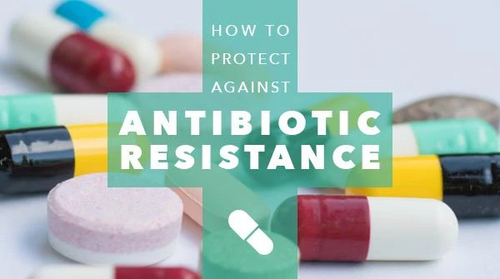Did you ever get the gut feeling something is wrong? This kind of feeling usually applies to something that’s going on around you, but when it comes to your health, it could be something that’s going on inside of you.
Gastrointestinal health is more important than you may realize. One reason is the presence of beneficial, orprobiotic, microorganisms living within the digestive tract, known collectively as the gut microbiome.
With more than100 trillion of these microbes (yes, that’s trillion with a “t”) living in your GI system, it’s no wonder you can’t enjoy peak digestive capacity―or a general sense of wellness―if you don’t support your gut microbiome.
Benefits of Healthy Digestion
Maintaining digestive wellness allows you to enjoy life to its fullest, and part of that involves keeping the beneficial microbes within your GI tract happy. Doing so can have a positive effect on how your body:
- Absorbs vitamins and minerals
- Regulates hormones
- Produces vitamins
- Eliminates toxins
- Effectively digests food
The Microbiome and Overall Well-Being
What’s more, a healthy GI system means more than simply digestive efficiency. About 70% of your immune system resides in your digestive system, where it interacts with your gut microbiome. It’s not hard to see why that would have a significant impact on your immune health.*
In addition, scientists have discovered that microbes in the intestines can “talk” to the brain via thevagus nerve, which runs from the brain to the colon. Besides influencing this nerve directly, the gut microbiome can also make neurotransmitters and other substances that affect the brain―including substances that help you maintain an even mood.*
Signs of Gut Imbalance
Occasional problems with poor digestion may occur if you have, for instance, overindulged at your favourite restaurant. But a microbial imbalance may be brewing if you’ve been regularly experiencing symptoms such as†:
- Abdominal pain
- Bloating after meals
- Constipation
- Diarrhea
- Headaches
- Joint pain
- Nausea
- Reflux
- Sugar cravings (include cravings for any source of refined carbs, such as baked goods)
Maintaining a Healthy Microbiome
Fortunately, you can help foster a healthy microbial balance within your intestines, mostly through the tried-and-true duo of diet and exercise.
Your first step? Cut out the bad stuff out of your diet, especially sugar and low-fibre carbohydrates, such as highly refined grains such as wheat and rice. (Avoid artificial sweeteners as well.) In addition, don’t drink alcohol to excess and avoid smoking.
Instead, fill your plate with fresh produce and whole grains, which contain healthy helpings of fibre. Concentrate on vegetables and fruits―including asparagus, bananas, eggplant, garlic, Jerusalem artichokes (also called sunchokes) and onions―that contain prebiotics, special types of fibre that help feed probiotic microbes within the intestines. Beans, peas and other legumes also contain prebiotics.
You should also eat fermented foods on a daily basis. The microbes that transform cabbage in sauerkraut, milk into yogurt and soybeans into miso are themselves probiotic in nature. Other fermented foods include tempeh, kimchi, sourdough bread and naturally processed pickles (many commercial varieties aren’t created through fermentation).
Exercise also influences the microbiome’s microbial mix. Get at least 30 minutes of moderate aerobic exercise―such as walking, running or bike riding―every day, along with two resistance workouts (such as weight lifting) a week.
†The information provided is not an endorsement of any product, and is intended for educational purposes only. NaturesPlus does not provide medical advice and does not offer diagnosis of any conditions. Current research on this topic is not conclusive and further research may be needed in order to prove the benefits described.
The conditions and symptoms described may be indicative of serious health problems, and therefore should be brought to the attention of a qualified healthcare practitioner.
**These statements have not been evaluated by the Food and Drug Administration. This product is not intended to diagnose, treat, cure or prevent any disease.



